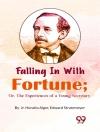In ‘Gay Life, ‘ E. M. Delafield explores the complexities of sexual identity and societal expectations during the early 20th century. Through a series of interconnected narratives that blend keen social observation with biting wit, Delafield masterfully captures the nuances of gay life, revealing the melancholic longing for acceptance that pervades her characters’ experiences. Her literary style is marked by its incisive dialogue and vivid descriptions, echoing the intricacies of Edwardian society while highlighting the tension between personal desires and societal norms. The novel stands as an early exploration of LGBTQ+ themes, making it a vital text in the literary canon of queer literature. E. M. Delafield, also known for her popular ‘Provincial Lady’ series, draws upon her own experiences and observations as a woman navigating the constraints of her time. Her background in literature and journalism imbued her with a sharp eye for social commentary, allowing her to portray life with both humor and seriousness. Delafield’s feminist sensibilities and knowledge of the intricacies of human relationships deeply informed her writing, making her insights particularly poignant. ‘Gay Life’ is an essential read for anyone interested in the evolution of LGBTQ+ literature and the representations of sexual identity within the historical context. Delafield’s eloquent prose invites readers to engage with themes of love, acceptance, and the quest for authenticity, making it a timeless exploration of the human experience.
About the author
E.M. Delafield, born Edmée Elizabeth Monica Dashwood (née de la Pasture) on June 9, 1890, in Steyning, Sussex, England, is recognized for her contributions to English literature, particularly for her prose that often weaves sardonic humor with social commentary. Delafield embarked on her writing career post World War I, a period when her firsthand experiences as a Voluntary Aid Detachment informed much of her early work. She is most renowned for her semi-autobiographical ‘Diary of a Provincial Lady’ series, which humorously chronicles the everyday life of an upper-middle-class Englishwoman. However, in ‘Gay Life’, Delafield explores different themes, offering keen observations on social mores and personal relationships within the setting of the leisure class. Her literary style often extrapolates the intricacies of domestic life, intertwining irony with a satirical edge, thereby providing a critique of the societal norms of her time. In addition to her novels, she contributed significantly to periodicals such as ‘Time and Tide’, embedding her narratives with a strong female perspective uncommon during her era. E.M. Delafield’s work continues to resonate with audiences, reflecting the perennial nature of her astute reflections on human behavior. She passed away on December 2, 1943, leaving behind a robust oeuvre that continues to be studied and enjoyed for its wit, candor, and insight into early 20th-century society.












